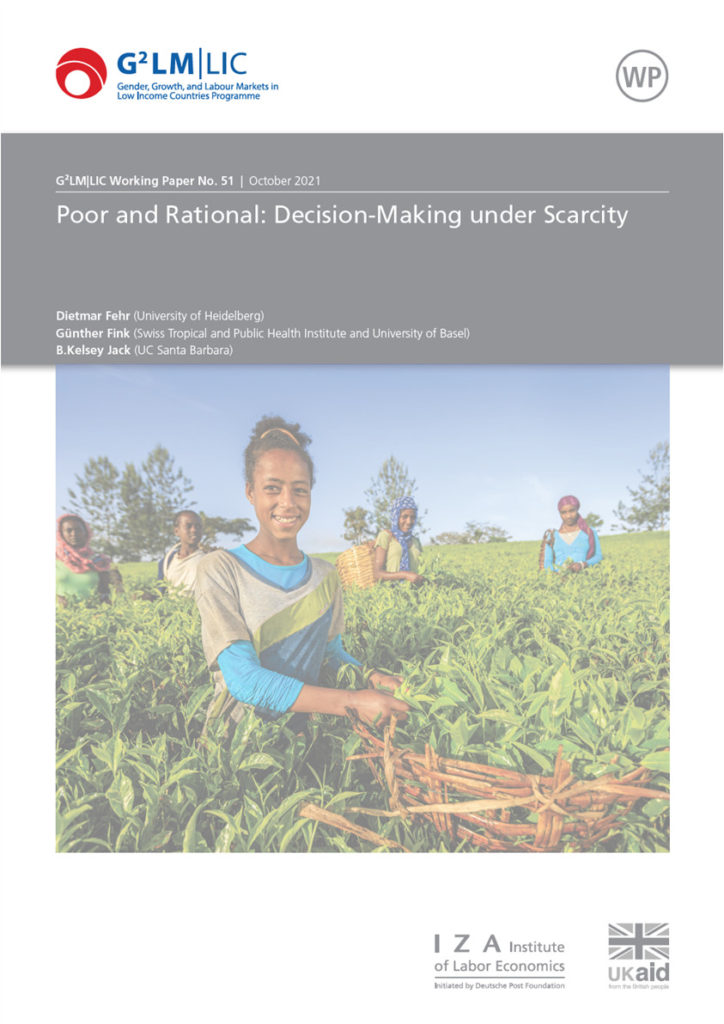Individual decision-making is prone to behavioral biases and deviations, especially among the poor. To get a grip on the extent of this, multiple approaches have been developed and investigated, however, evidence on how and why the availability of financial resources affects decision-making is largely missing. In this paper, researchers use multiple resources of variation in households’ financial constraints – “scarcity” – to show that scarcity improves decision-making in a real-stakes decision with immediate payoffs and that these decision patterns can be explained by decision stakes: when households are poorer, the same decision is more consequential and so, decisions move closer to the normative benchmark.
Evidence comes from decision experiments with 3059 small-scale farmers in rural Zambia over 14 months that were embedded in an ongoing randomized controlled trial on credit access and labor supply that involved repeated surveys over multiple years (see Fink, Jack and Masiye, 2018). These experiments focused on behavior in one of the most basic economic decisions: the exchange of goods. Here, participants get one out of two equally valued items and at the end they are offered to trade/exchange them for the other. Results show that strong and robust evidence for the existence of exchange asymmetries (i.e. trading rates below 50 percent) for rural farmers. Furthermore, across all item pairs, only 35 percent of participants traded the endowed item on average. Researchers also investigate the relationship between scarcity and decision-making and conclude that different sources of variation used to identify different households are substantial and predictive of their consumption levels and living conditions. Read the detailed Working Paper here.
